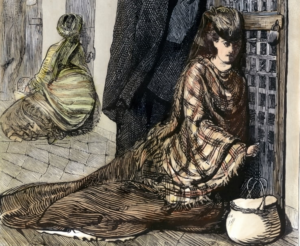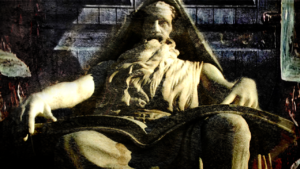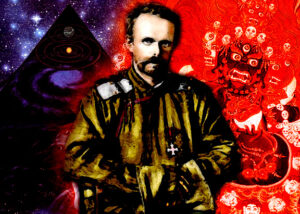Evola’s Concept of Initiation

Julius Evola often refers to “initiation” in a majority of his works, but what exactly does he mean by this? We must examine his essay “The Concept of Initiation”:
The essay comes from his anthology “The Bow and the Bludgeon (or Club)” which consists of articles, essays and conference speeches. The “Bludgeon” portion of the book deals with modern society, whereas the “Bow” portion aims to shoot higher, approaching higher objectives.
Evola begins by stating that the modern understanding of the term “initiation” excludes the Traditional definition, and those who engage in initiation rituals are always seen today as “magicians”, “clairvoyants” or some other concept inherent to the thinking of lower castes. The contribution by the Traditionalist current following René Guénon is the only positive side of the “initiation” discourse; Evola wishes to define the term in and for itself, ie in a pure state, as a “spiritual category”.
Etymologically, “to initiate” means to provide a new commencement, a sort of rebirth. A fundamental premise of Initiation is that the human condition can be surpassed and transcended.
An opposition between Initiate and Superman is helpful here: Superman as strengthened species of man, to which the Initiate cannot belong; the Superman belongs to a Promethean plane (seeks to gain superior power), the Initiate belongs to the Olympian plane (acquired this power). Evola makes a distinction: “High” Initiation; tribal primitive initiations operated in downward direction, “the individual opens himself to the mystical-vital force of his stock, is integrated with it, makes it his own”. This is almost always something collective, sub-personal.

Religion must be separated from Initiation; through popularisation and flattering of original teachings religion has developed from a domain with an initiatory character. Buddhism is an example of this, the gulf between “doctrine of awakening” and what developed from it later.
The limit of “human I – divine Thou” displays how religion differs from Initiation; Initiation wishes to break through this limit – beyond God-as-person there is a superior unconditioned reality; religion is in inferior degree of reality vs that which can be transcended to. The religious concept of salvation is replaced by an awakening and the metaphysical awareness of the dimension of transcendence.

Religious concept of immortality doesn’t question immortality of the soul, instead refers to passage of immortal soul to opposing states based on morality (paradise or hell).
In Traditional esoteric teachings, the soul may not survive – immortality is an exceptional possibility.
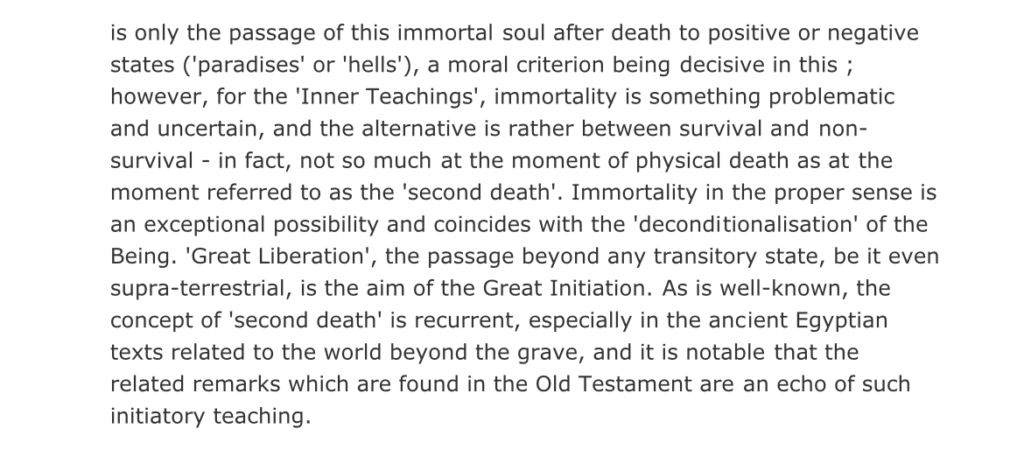
Morality differs in being an “imperative power from divine law” or, for Traditional thinking, “means ordered to an end; conditions to ensure favourable dispositions of character for Initiatory transformation”.
Moral precepts in religion undergo ethnic and historical conditioning, lacking something constant; for morality from the point of view of Initiation, it is purely instrumental, only functioning in order for the goal to be reached (“Left Hand Path” for example).
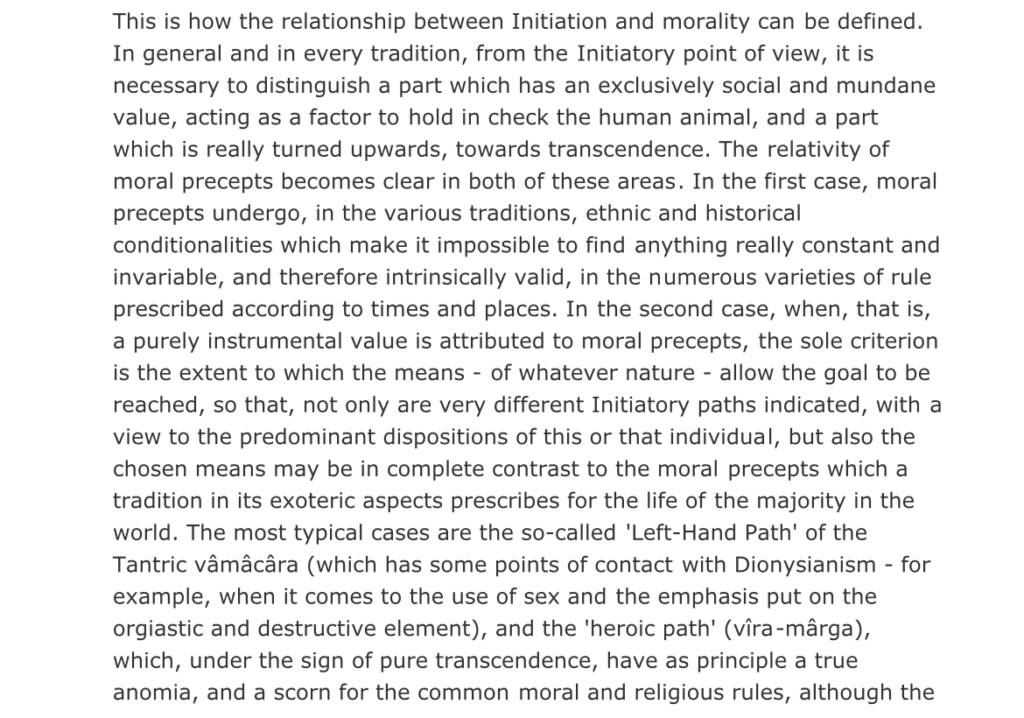
Modern language perverts the term “mysticism” to mean the extreme limits of religion; mysticism as external, unguided, yet Initiation remains internal.

The concept of Tradition hence refers to an unbroken chain which refers to an original centre; the one undergoing initiation is transmitted through a special force by a representative of an organization which is the holder of it, a trustee of esoteric teachings.
The qualifications for Initiation are of highly inner nature; “an eminent representative of culture, a scientist, or a modern philosopher may be less qualified than an almost illiterate person” determined by tendency to self-transcendence, an active inner opening beyond the human. “a certain unification and harmonisation of the Being is indicated as the requirement for Initiation; when there are imbalances and splits in the individual, they become exacerbated by the contact with transcendent forces and the effect can be disintegration and ruin”.
Esotericism can be considered as a special light; it does not deal with an artificially secret knowledge, but rather with truth that becomes visible only at certain states of consciousness, those that are higher than the lower caste man and the blind believer.

Evola’s concluding point moves away from definitions and instead tries to approach the connection of Initiation to mundane reality. In Traditional civilisations, the centre, ie the divine royalty, often had the same character and nature as the Initiate, a metaphysical one.
“Anyone today who has Initiatory aspirations, by force of necessity, should consider a different path from that still termed ‘regular’, constituted by the ‘horizontal’ joining with an existing living chain.”









